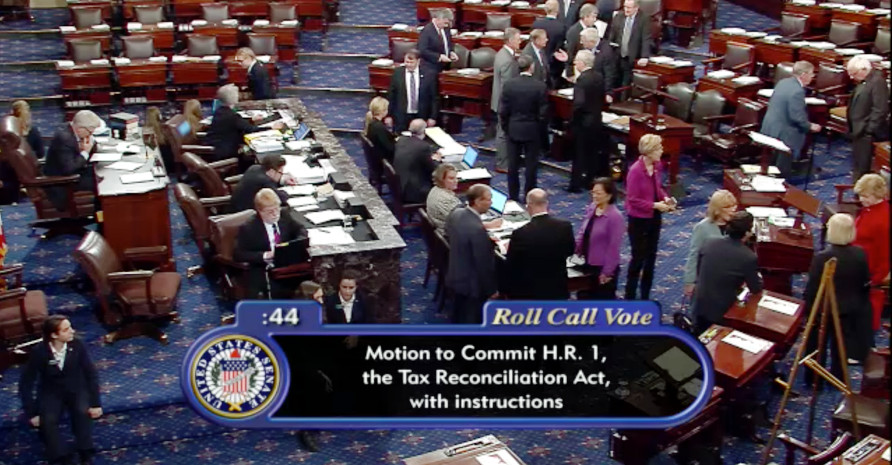Over the course of this week, the U.S. solar and wind industries have had to rapidly mobilize to stop a provision that endangers the $12 billion annually in tax equity for solar and wind projects, which according to Bloomberg New Energy Finance (BNEF) represented 21% of total U.S. renewable energy investment last year.
It appears solar and wind lost that struggle, in the Senate at least. Shortly after midnight, the U.S. Senate narrowly passed a major tax reform bill 51-49 upon party lines, which contains a provision that could make both the Investment Tax Credit (ITC) and Production Tax Credit (PTC) unusable to multinational banks and other corporations, including those based in the United States.
In an interview with pv magazine USA, Gregory Jenner of law firm Stoel Rives said that as it currently stands in the Senate bill that the Base Erosion Anti-Abuse Tax (BEAT) could be a “hand grenade” lobbed into U.S. solar tax equity markets. It would be effective as of 2018.
Both Solar Energy Industries Association (SEIA) and Keith Martin of Norton Rose Fulbright say BEAT was probably not intended to have this impact upon the ITC and PTC, and that it is instead a broader measure to limit the amount of taxes such corporations can avoid. However, it is clear that if BEAT makes it to the final tax bill in its current form, it will make ITC and PTC useless to many of the largest investment banks in the United States.
And while SEIA says that it has the support of four Republican senators on “possible fixes”, such a fix had materialized as the bill passed the Senate early Saturday morning 51-49, with Senator Bob Corker (R-TN) joining the entire Democratic Party and Senator Bernie Sanders (I-VT) in opposition. However, as the final text of the bill – parts of which had hand-written modifications on Friday – has not been released, no one knows for sure.
If BEAT is still in the bill, SEIA and allies including American Council on Renewable Energy (ACORE) and American Wind Energy Association (AWEA) have one more chance to fix this provision in conference committee, where the House and Senate versions are reconciled.
According to a note by SEIA to its members, one potential fix would have been an amendment to give the ITC and PTC “a two year transition period using current law instead of the BEAT provision”. It is unclear if this is the route that will be pursued in conference committee, or if renewable energy groups will try to eliminate BEAT altogether.
If renewable energy groups are unable to stop BEAT from making it into the final bill or to get an exemption for the ITC and PTC, there are going to be a lot of solar and wind developers looking for an diminished share of investors who will be able to monetize these tax credits. The Republican Party will have eviscerated a major support for clean energy – perhaps as an unintended casualty in their rush to re-write the tax code.
Update: This article was updated on 9:20 AM United States’ EST on December 4. Initially any action on the BEAT provision looked doubtful, but since we have been able to confirm that the BEAT provision was not modified before the passage of bill.
This content is protected by copyright and may not be reused. If you want to cooperate with us and would like to reuse some of our content, please contact: editors@pv-magazine.com.








By submitting this form you agree to pv magazine using your data for the purposes of publishing your comment.
Your personal data will only be disclosed or otherwise transmitted to third parties for the purposes of spam filtering or if this is necessary for technical maintenance of the website. Any other transfer to third parties will not take place unless this is justified on the basis of applicable data protection regulations or if pv magazine is legally obliged to do so.
You may revoke this consent at any time with effect for the future, in which case your personal data will be deleted immediately. Otherwise, your data will be deleted if pv magazine has processed your request or the purpose of data storage is fulfilled.
Further information on data privacy can be found in our Data Protection Policy.